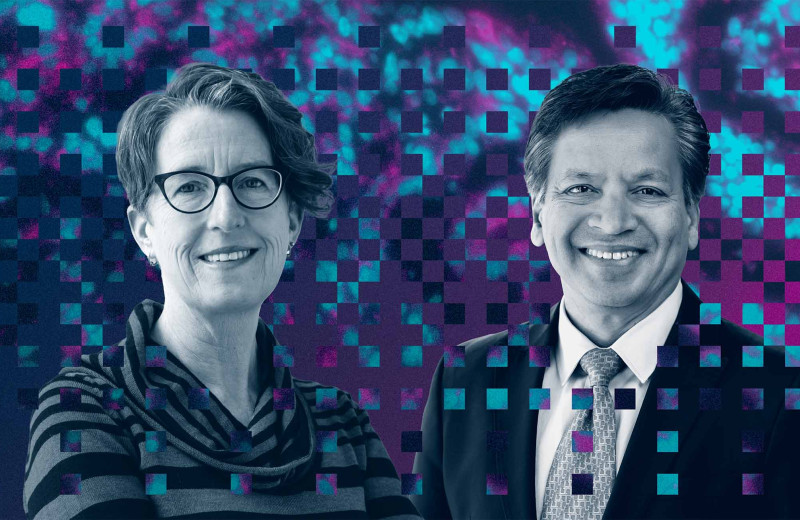Gladstone NOW: The Campaign Join Us on the Journey✕
Where do artificial intelligence and robotics fit into discoveries? In this session of the Newton Series, Steve Finkbeiner, MD, PhD, explains how these tools contribute to his lab’s work in understanding the fundamentals of brain cells, which he hopes will lead to discoveries in memory diseases like Alzheimer’s or Parkinson’s.
The Newton Webinar Series is inspired by the story of Isaac Newton’s extraordinary intellectual output while in quarantine during the Great London Plague of 1665, and offers an alternative to all the news related to COVID-19. Each week, we feature a conversation with Gladstone’s scientists and explore their moonshot ideas, how they approach their work, and what they think medicine may look like 10, 20, and 50 years from now.
Support Discovery Science
Your gift to Gladstone will allow our researchers to pursue high-quality science, focus on disease, and train the next generation of scientific thought leaders.
How AI Is Accelerating Life-Saving Discovery
How AI Is Accelerating Life-Saving Discovery
Gladstone scientists are developing new AI tools that promise to revolutionize how science is done and lead to new treatments for the most devastating diseases.
AI Srivastava Lab Pollard Lab Engelhardt Lab Theodoris Lab Shipman Lab Ramani Lab Finkbeiner Lab Cardiovascular Disease Neurological DiseaseMeet Gladstone: Shijie Wang
Meet Gladstone: Shijie Wang
Shijie Wang, a postdoctoral scholar in Steve Finkbeiner’s lab, uses artificial intelligence, robotics, and stem cell technologies to uncover how brain cells die in neurodegenerative diseases like Alzheimer’s and Parkinson’s.
Profile Neurological Disease Finkbeiner Lab AI Robotic MicroscopyScience in Seconds | The Thinking Microscope: Research Powered by an AI Brain
Science in Seconds | The Thinking Microscope: Research Powered by an AI Brain
In this video, Steve Finkbeiner and Jeremy Linsley showcase Gladstone’s groundbreaking “thinking microscope”—an AI-powered system that can design, conduct, and analyze experiments autonomously to uncover new insights into diseases like Alzheimer’s, Parkinson’s, and ALS.
Gladstone Experts ALS Alzheimer’s Disease Parkinson’s Disease Neurological Disease Finkbeiner Lab AI Big Data



